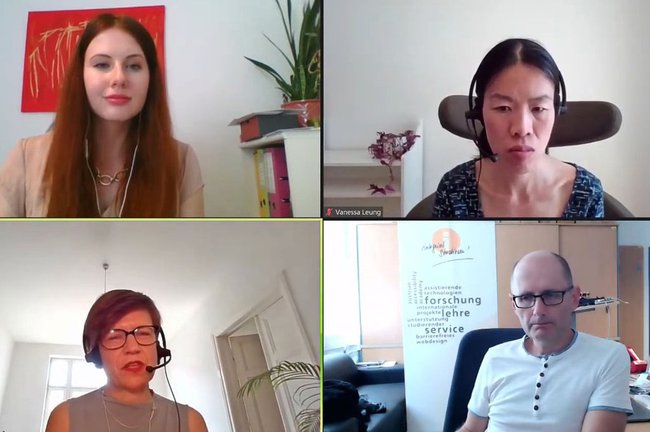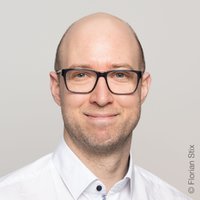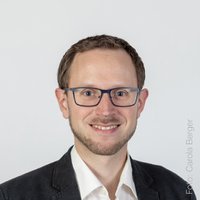Digital Health for Better Access to Healthcare
Report on the St. Pölten UAS’ build.well.being 2021

The annual build.well.being is a free-of-charge networking event for digital healthcare professionals. Health professionals meet developers, applied science interweaves with innovative ideas from students, companies get together with start-ups and experts.
This year’s event focused on the topic “Access All Areas – How Participatory Design Helps Shape a More Inclusive Society”.
Call to Action for Inclusive Design and Accessibility
This short afternoon with over 100 participants started with a call to action for inclusive design and accessibility for all. The keynote “Accessibility and Assistive Technology – Where Participatory Design for a More Inclusive Society Starts” was held by Klaus Miesenberger, head of the Institute “Integriert Studieren” at Johannes Kepler University Linz.
“We are overwhelmed by the speed and the far-reaching spread of digitalisation. Whether we look to the scientific communities in nearly all disciplines or turn to the discourse in the media and the broader public – everybody seems to be talking about digitalisation. However, it is extremely important in this context that we do not forget about elderly people and people with special needs, especially when it comes to digitalisation in the health sector. Digitalisation is only useful if it yields tools that are practical in everyday life, and it will only be accepted if it works well at the human-technology interface. Assistive technologies and accessibility play a major role in this field”, says Miesenberger, who suggested seven ideas on how to bring this topic to research, development and practice in his lecture.
Eye Tracking for Fighting Myopia
Vanessa Leung of the St. Pölten UAS’ Center for Digital Health and Social Innovation talked about the project “Taking Eye Tracking to the Real World“. The project uses eye tracking and sensor technology to monitor children's vision habits and thereby prevent myopia. More screen time, not least during the pandemic, has led to an increase in myopia in children.
“This increase in myopia in children is related to lifestyle habits and those are difficult to monitor. We combined eye tracking and sensor technology to allow for a quantitative measurement of the children’s visual behaviour. This technology enables us to study many behavioural patterns of daily life for which we have not had reliable data so far”, explains Leung.
Help for Patients: Students Present Their Projects
Students of the St. Pölten UAS’ degree programme Digital Healthcare showcased innovative ideas ranging from visual onboarding for radiotherapy and voice-assisted listening exercises for cochlea-implanted children to motivational apps for playing outside.
Anna-Magdalena Springer also presented her project: “My goal as a radiologic technologist is to help patients by ensuring stress-free and easy-to-understand treatment. Our project “BreathX” offers audiovisual feedback for patients undergoing radiation therapy to create a relaxed treatment atmosphere. The degree programme Digital Healthcare allowed me to combine my medical know-how with digitalisation topics such as sensor technology and user interface design. I really enjoyed presenting the prototype created by our interdisciplinary team at the build.well.being."
In the end, the participants could engage in an “Inspiring Chat” with the experts. The discussion featured: Petra Plunger of the St. Pölten UAS’ Center for Digital Health and Social Innovation, Klaus Miesenberger and Vanessa Leung.
“With this event, we want to motivate people to implement inclusive design and accessibility on a larger scale. In an Inspiring Chat, experts discussed the requirements and potentials of a digital healthcare system for wellbeing and care”, explains Jakob Doppler, Academic Director of the St. Pölten UAS’ study programme Digital Healthcare, and organiser of the event.
Cooperation partners:
The event was supported by:
- Digital Makers Hub, Digital Innovation Hub Ost (DIHOST)
- AAL Austria
- Österreichische Gesellschaft für Public Health
- Europaregion Donau Moldau (EDM), and
- Ecoplus.
The initiatives Digital Makers Hub and the Digital Innovation Hub Ost (DIHOST) are subsidised by the Federal Ministry for Digital and Economic Affairs within the framework of the research programme "Digital Innovation Hub in Austria". The EDM (Danube-Moldova European Region) is subsidised by the Bavarian Ministry of Economic Affairs, Regional Development and Energy.

FH-Prof. Jakob Doppler, MSc
Academic Director Digital Healthcare (MA)Department Media and Digital Technologies Head of Center for Digital Health and Social Innovation
Department Health Sciences
